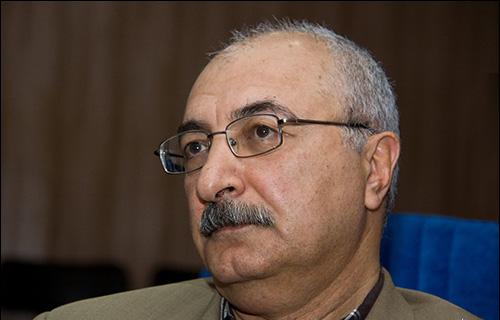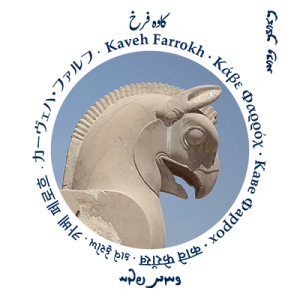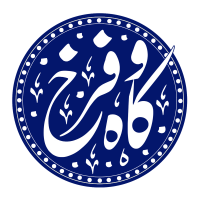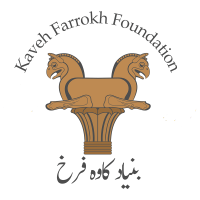Below are excerpts from that report with the full Persian paragraph also cited for reference:
It has been quite some times that Western Orientalists have insisted on neglecting Ferdowsi’s own assertion on having “Nameh ye Bastan” (trns: Ancient Book) and “Nameh ye Khosrowan” (trsn: Book of Kings) reduce him to merely a narrator of oral traditions in his own era. In this way they imply Iran’s literary culture is 1500 years behind Greeks while apart from Ferdowsi’s case we do have abundant evidences of hundreds of Sasanid books being translated by Arabic scholars of Persian origins into Arabic in early Abbasid era…this group of people and their Iranian followers make a series of other claims beyond Firdowsi…Professor Mahmoud Omidsalar, who has taught at universites in California, has repeatedly disproven the claims of these Eurocentirsts, for which he has been forced to pay a heavy price. His articles have been banned from publication in “Iran’s Epic and America’s Empire” as well as journals. Professor Omidsalar has evne lost his job as a teaching academic and has worked as a manual labourer! The Professor however hasrecently published a book on the Shahname, its improtance for today – with it’s primary audience being the diaspora Iranian youth of the West…Note a portion of his articles below that refer to the corruption and “Parti-Bazi” In fact, Dr. Omidsalar’s concerns are nothing new – concerns with issues of Eurocentricism and bias in Iranian Studies have been raised by Professor Jalal Matini, editor of the esteemed Iranshenasi peer-reviewed journal. Being made an example of? Professor Mahmoud Omidsalar was duly “punished” for daring to challenge Eurocentrist views – his articles have been banned from publication in books and journals. Professor Omidsalar also lost his job as a teaching academic and has been forced to work as a manual labourer just to survive. He has referred to corruption and “Parti-Bazi” [پارتی بازی] (Persian term for working with the “right connections” or “greasing the wheels” to get things done) in Iranian Studies venues. Professor Omidsalar is not the only victim of Eurocentrist bias. There are many other Iranologists who have fallen victim to their censorship. Eurocentrists, Wikipedia and Character Assassination: the case of Shapour Suren Pahlav One of the key members of the Eurocentrist group to engage in character assasination of Iranian historians has been Jona Lendering. Lendering has used his Wikipedia supporters and administrators to forcefully eject Shapur Suren-Pahlav’s CAIS postings regarding Cyrus the Great out of the Wikipedia in 2007-2009. The reason: Lendering represents the views of Eurocentrists who insist that the Human Rights legacy of Cyrus the Great is simply “Shah propaganda”. Jona Lendering (left) and one of his defamatory-attack victims, Iranian historian Shapour Suren-Pahlav (right) who is also host of the Circle of Ancient Iranian Studies (CAIS) in London which provides resources for learning about ancient Iran. Despite his racist behaviour and open attacks against Cyrus the Great, Lendering is provided with an office in Tehran, located on Vozara street. Lendering has also succeeded in forcefully severing the ties of Shapur Suren-Pahlav’s CAIS venue with SOAS of London. Shapour Suren-Pahlav protested against these actions but in vain – see his official letter to Wikipedia below: An Open Letter to Wikipedia Blog Founder, Jimmy Wales Regarding False Allegations Against CAIS It is worth noting that Jona Lendering has been furnished with an office in Tehran on Vozara Street where his views against Cyrus the Great are supported by the religious right as well as “former” left-wing activists. Note that Jona Lendering’s anti-Iranian activities have resulted in a major Human Rights petition bearing over 1450 signatures to date. Unfortunately, the cases against Professor Omidsalar or Shapour Suren-Pahlav are not isolated incidents. For a wider insight into Eurocentrists and their activities in academia, the internet, media and other venues, kindly see: There are also professors now active within Iranian Studies who have written books, alleging the existence of an “Ara…bian Gulf” since pre-Islamic times – for more on this – Click Here… There are in fact professors who use the word “Ar..bian Gulf” in reference to the Persian Gulf during Iranian Studies fund-raising events- see for example the video below (49 minutes and 25 seconds into the video below): An awkward Moment. Professor Matt Stolper shows his Iranian audience a map of the Persian Gulf which bears the inorrect name “Ar-bian Gulf”. Stolper provides a confusing explanation as to why he chose to display this incorrect map when confronted on this by one of the audience members (49:25 minutes into the interview). This occurred during Stolper’s fund-raising drive for the Persepolis Fortification Archive on October 11, 2009 in Silicon Valley California. If Professor Stolper’s error is so easily forgotten, then why would Professor Omidsalar be fired from his post for challenging Eurocentirsts?مدت هاست که خاور شناسان غربی علیرغم نص صریح فردوسی در شاهنامه به در دست داشتن “نامه باستان” یا “نامه خسروان” اصرار دارند که از او چهره ای شبیه هومر نقال نیمه افسانه ای یونان یک شاعر بدیهه سرای شفاهی بسازند. این خاورشناسان غربی با ساده اندیشی یا غرض ورضی فردوسی را مکتوب کننده روایات شفاهی زمان خود می دانند و بدین ترتیب زمان “کتاب دار شدن” ایرانیان را هزار و پانصد سال بعد از یونانیان معرفی می کنند. البته روایات شفاهی تنها یکی از منابع فردوسی به شمار می رود. این دسته افراد و دنباله روهای ساده دل ایرانی شان ادعاهای دیگری هم دارند که در این مجال نمی گنجد. پرفسور محمود امید سالار است که در دانشگاه ایالتی کالیفرنیا تدریس می کند. ایشان بارها با مدارک متقن و کافی بی پایه بودن خیلی از این ادعاها را ثابت کردند و هزینه اش را هم دادند، از چاپ نشدن مقالاتشان در مجلات ایرانشناسی تا ترک شغل و کارگری! کتاب اخیر ایشان Iran’s Epic and America’s Empire هم حاوی نکاتی نغز در مورد شاهنامه است و اینکه چرا در این دوران بیش از هر زمان دیگری به آن نیاز داریم. این کتاب به ویژه برای نسل جوان ایرانی ساکن کشورهای غربی نوشته شده است. بخشی از مطلب ایشان در مورد فساد و پارتی بازی در ایرانشناسی را ملاحظه بفرمایید که در رد تاثیر پذیری فردوسی از هومر نوشتند:





